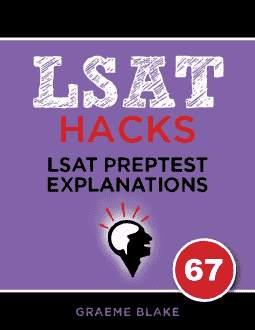QUESTION TEXT: Professor: Unfortunately, pharmaceutical companies and other…
QUESTION TYPE: Necessary Assumption
CONCLUSION: The department won’t get an award unless it gets more funding from non-profit sources.
REASONING: The department won’t get an award unless it gets more funding for basic scientific research.
ANALYSIS: I simplified the reasoning above so you can more easily spot the gap. This is almost a good argument.
The professor has shown that his department needs more funding for basic science. What the professor hasn’t shown is that that funding must come from non-profit sources.
There’s no reason corporations couldn’t fund basic science. The professor has to assume that they won’t.
Several wrong answers talk about what will happen if the department succeeds. We don’t care about that. We only care about whether the department can succeed without additional non-profit funding.
___________
- The professor didn’t say that his department was guaranteed success if they get funding. He just said that the department would fail without basic science funding. It’s a necessary condition.
- This would be a nice side effect, but it doesn’t matter what would happen if the department succeeds. The professor’s argument is about whether the department could succeed.
- The professor didn’t say the department had to give up it’s corporate funding. He just argued the department needed outside funding as well.
- CORRECT. Exactly. The professor has to assume that corporations won’t provide additional basic science funding. If corporations did provide extra funding, then the department wouldn’t need more outside funds.
- We don’t care whether the corporations benefit. We only care if they believe they ought to increase basic science funding. Belief and fact are two different things.


Hello!
How would I use the negation method for a conditional if-then statement? Do I negate the first part of the statement (the sufficient part) or do I negate the second part of the statement (the necessary part)? Or, do I negate both?
For example: “The chemistry department’s funding for basic science research is NOT likely to increase if its funding from sources other than profit-driven institutions does NOT increase?” (which “NOT” would I negate?)
You’d focus on the sufficient condition. But, it’s also important to understand the original sentence fully, and to understand why the negation is what it is. Here are the two possible negations you’ve suggested:
(1) The chemistry department’s funding for basic science research is likely to increase if its funding from sources other than profit-driven institutions does not increase.
(2) The chemistry department’s funding for basic science research is not likely to increase if its funding from sources other than profit-driven institutions increases.
Is (2) really a negation of the original sentence, or is it just adding another possible set of conditions that would make the funding of basic science research unlikely to increase? (1) is the clear negation of the meaning of the sentence.
Although there are time-saving methods for negations, you should try to think about what the negation is based on an overall understanding of the sentence, and what the converse of that sentence would be, rather than relying on specific tricks. Sometimes the LSAT can throw more challenging statements your way, or will produce scenarios where relying on older tricks might yield the wrong answer.